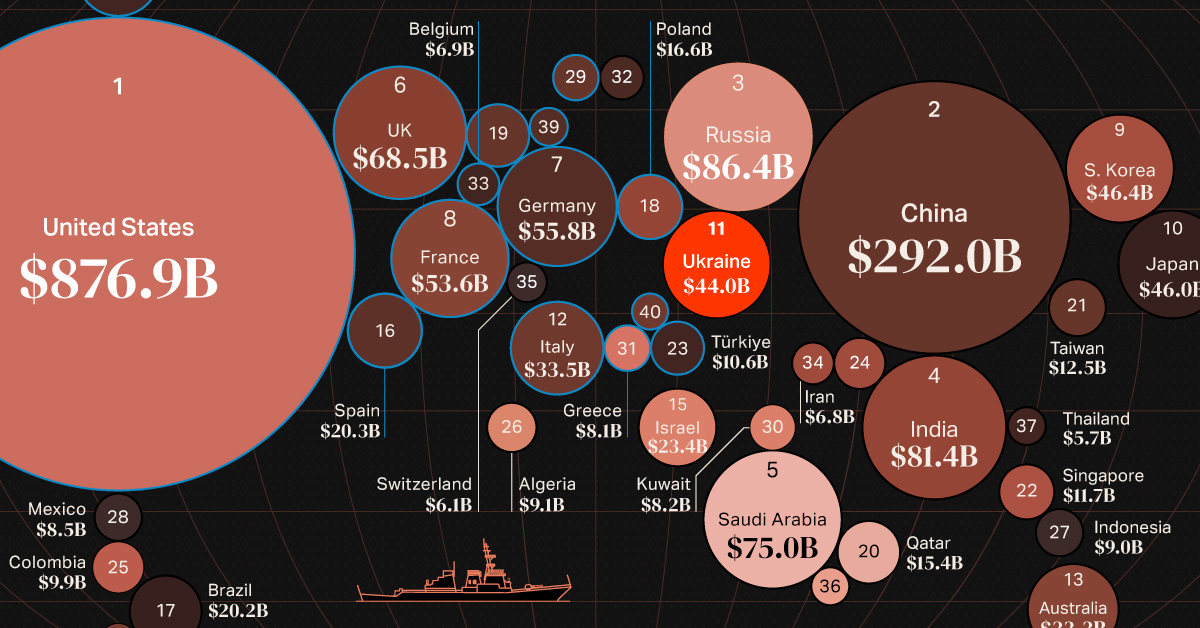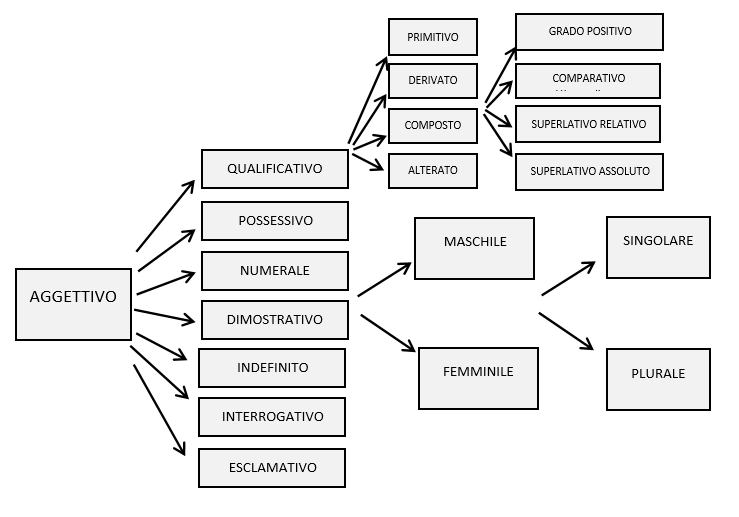Rising Global Military Expenditure: The Impact Of The Ukraine Conflict

Table of Contents
The Surge in Military Spending Post-Ukraine Conflict
Since the beginning of the Ukraine conflict, defense budgets worldwide have experienced a dramatic upswing. Data from reputable sources like the Stockholm International Peace Research Institute (SIPRI) paint a clear picture of this alarming increase. The conflict has shattered the complacency of many nations, prompting a reassessment of their security needs and a significant reallocation of resources.
- Specific examples: Countries like Germany have announced substantial increases to their military spending, committing to exceeding the NATO target of 2% of GDP. Similarly, several Eastern European nations bordering Russia have dramatically increased their defense budgets to counter perceived threats.
- Percentage increases: Europe has witnessed some of the most significant percentage increases in military expenditure, driven primarily by security concerns related to the war in Ukraine. Asia, particularly in regions with existing geopolitical tensions, has also seen notable increases.
- Types of expenditure: This increased spending encompasses a broad spectrum, including personnel increases, the procurement of advanced weaponry, and substantial investments in military modernization programs. This includes everything from increased personnel salaries to purchasing cutting-edge fighter jets and investing in cyber warfare capabilities.
Impact on Global Economic Stability
The heightened military spending has profound economic implications. The massive resource allocation to defense necessarily diverts funds from other crucial sectors, creating a significant opportunity cost.
- Increased national debt: Many nations are facing increased national debt due to the ballooning military budgets. This debt can constrain future economic growth and limit investment in essential social programs.
- Reduced spending on social programs: The economic strain is likely to lead to cuts in essential social programs, such as healthcare, education, and infrastructure development, ultimately impacting the well-being of citizens.
- Inflationary pressures: The substantial increase in demand for military goods and services can contribute to inflationary pressures, affecting the cost of living for ordinary people.
- Examples: Several countries are already experiencing economic strain as a result of their increased military spending, facing difficult choices between national security and social welfare. The long-term economic consequences could include slower economic growth and increased social inequality. The opportunity cost of prioritizing military spending over investments in education or healthcare, for example, could have long-lasting negative impacts.
Geopolitical Implications and Shifting Power Dynamics
The Ukraine conflict has profoundly reshaped geopolitical alliances and strategies, significantly impacting the global balance of power.
- New military alliances and partnerships: The conflict has prompted a strengthening of existing alliances like NATO and the forging of new security partnerships, particularly in Eastern Europe.
- Impact on specific regions: The geopolitical landscape of Eastern Europe has been fundamentally altered, with a significant increase in military presence and tensions. The Asia-Pacific region also faces a reshaping of alliances and power dynamics due to escalating tensions.
- Increased international tensions and conflicts: The increased military spending and shifting alliances heighten the risk of miscalculation and escalation, potentially leading to further international conflicts. The heightened state of global alertness increases the chances of incidents sparking larger conflicts.
The Arms Race and its Consequences
The Ukraine conflict has the potential to accelerate an already concerning global arms race. The increased demand for military equipment and technology fuels a cycle of competition, creating further instability.
- New weapons systems: We are witnessing a surge in the development and procurement of new weapons systems, including advanced drones, hypersonic missiles, and cyber warfare capabilities. This increases the potential for more destructive and indiscriminate conflicts.
- Impact on international arms control agreements: The current geopolitical climate threatens to weaken international arms control agreements, further exacerbating the arms race and undermining global security.
- Ethical considerations: The proliferation of advanced weaponry raises profound ethical considerations, particularly concerning the humanitarian impact of increasingly destructive conflict. The potential for unintended consequences and escalation is a pressing concern.
The Human Cost of Rising Global Military Expenditure
The diversion of resources towards military spending carries a significant human cost. Reductions in funding for healthcare, education, and social welfare programs directly impact the lives and well-being of citizens. The opportunity cost of prioritizing military spending over investments in human capital and social development should not be overlooked. Reduced healthcare access, lower educational attainment, and increased poverty are just some of the potential consequences of prioritizing military expenditure over social welfare.
Conclusion
The rising global military expenditure post-Ukraine conflict is a multifaceted phenomenon with profound economic, geopolitical, and ethical consequences. The dramatic increase in defense budgets worldwide, driven by the conflict, poses significant challenges to global stability and economic prosperity. Understanding the complexities of rising global military expenditure is crucial. Stay informed and contribute to the discussion on this critical issue by researching the latest data from sources like SIPRI and engaging in informed conversations about military budgets, defense spending, global security, and arms control. The future of global peace and prosperity hinges on addressing this escalating trend effectively.

Featured Posts
-
 Mario Nanni Ricordando La Sua Eredita Nel Giornalismo Politico
May 01, 2025
Mario Nanni Ricordando La Sua Eredita Nel Giornalismo Politico
May 01, 2025 -
 Dagskrain Meistaradeildin Og Nba Stjoernu Einvigi I Bonusdeildinni
May 01, 2025
Dagskrain Meistaradeildin Og Nba Stjoernu Einvigi I Bonusdeildinni
May 01, 2025 -
 The Future Of French Rugby Six Nations 2025 Predictions
May 01, 2025
The Future Of French Rugby Six Nations 2025 Predictions
May 01, 2025 -
 The 1 Million Debt Relief Michael Sheens Impact On 900 Lives
May 01, 2025
The 1 Million Debt Relief Michael Sheens Impact On 900 Lives
May 01, 2025 -
 Pasifika Sipoti In Brief Key Events Of April 4th
May 01, 2025
Pasifika Sipoti In Brief Key Events Of April 4th
May 01, 2025
Latest Posts
-
 Il Venerdi Santo Secondo Feltri Analisi Di Una Frase Controversa
May 01, 2025
Il Venerdi Santo Secondo Feltri Analisi Di Una Frase Controversa
May 01, 2025 -
 Louisvilles Early 2025 Catastrophes Snow Tornadoes And Severe Flooding
May 01, 2025
Louisvilles Early 2025 Catastrophes Snow Tornadoes And Severe Flooding
May 01, 2025 -
 Louisville Faces Triple Threat Snowstorm Tornadoes And Record Flooding In 2025
May 01, 2025
Louisville Faces Triple Threat Snowstorm Tornadoes And Record Flooding In 2025
May 01, 2025 -
 Heavy Rainfall Prompts State Of Emergency Declaration In Kentucky
May 01, 2025
Heavy Rainfall Prompts State Of Emergency Declaration In Kentucky
May 01, 2025 -
 Improved Mail Delivery Expected In Louisville Following Recent Delays
May 01, 2025
Improved Mail Delivery Expected In Louisville Following Recent Delays
May 01, 2025
